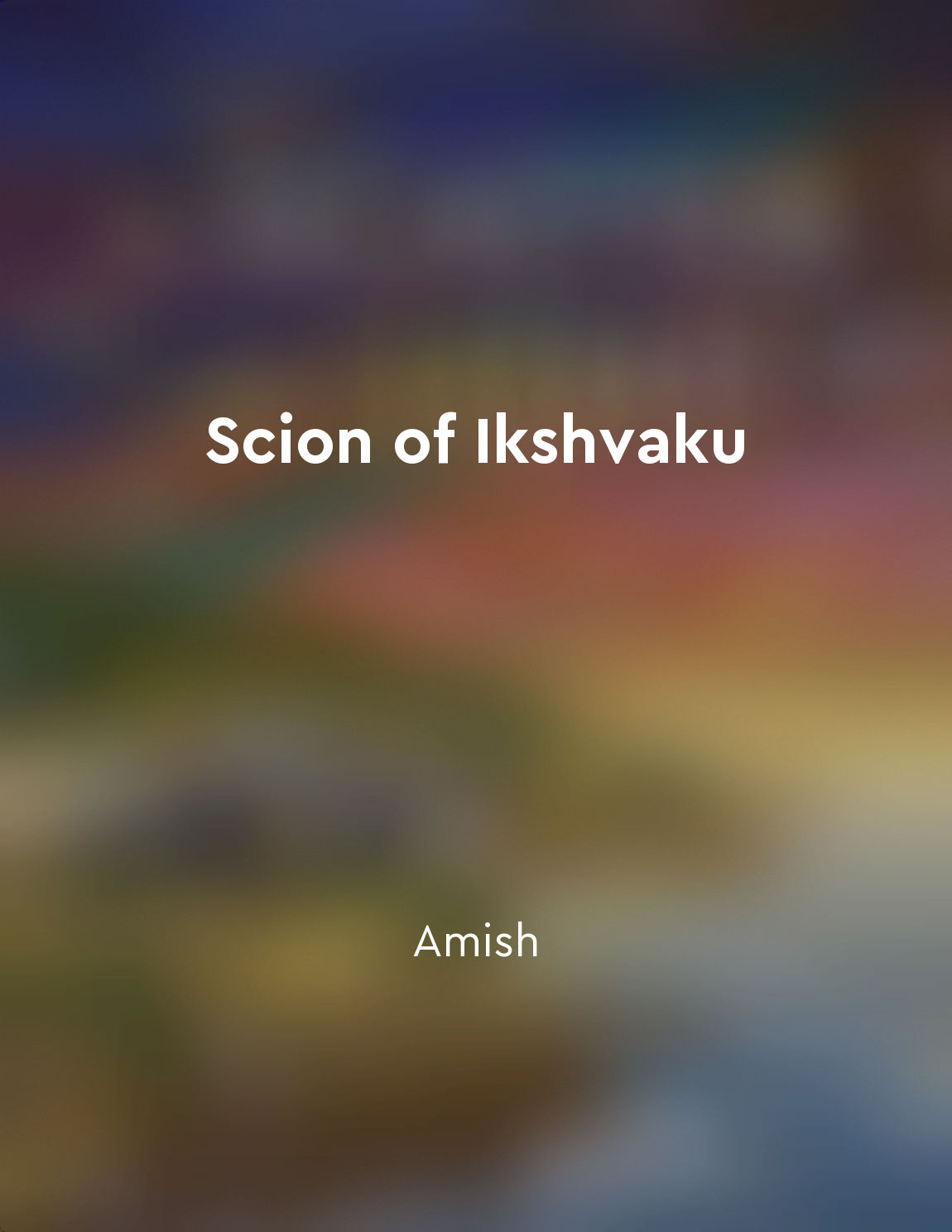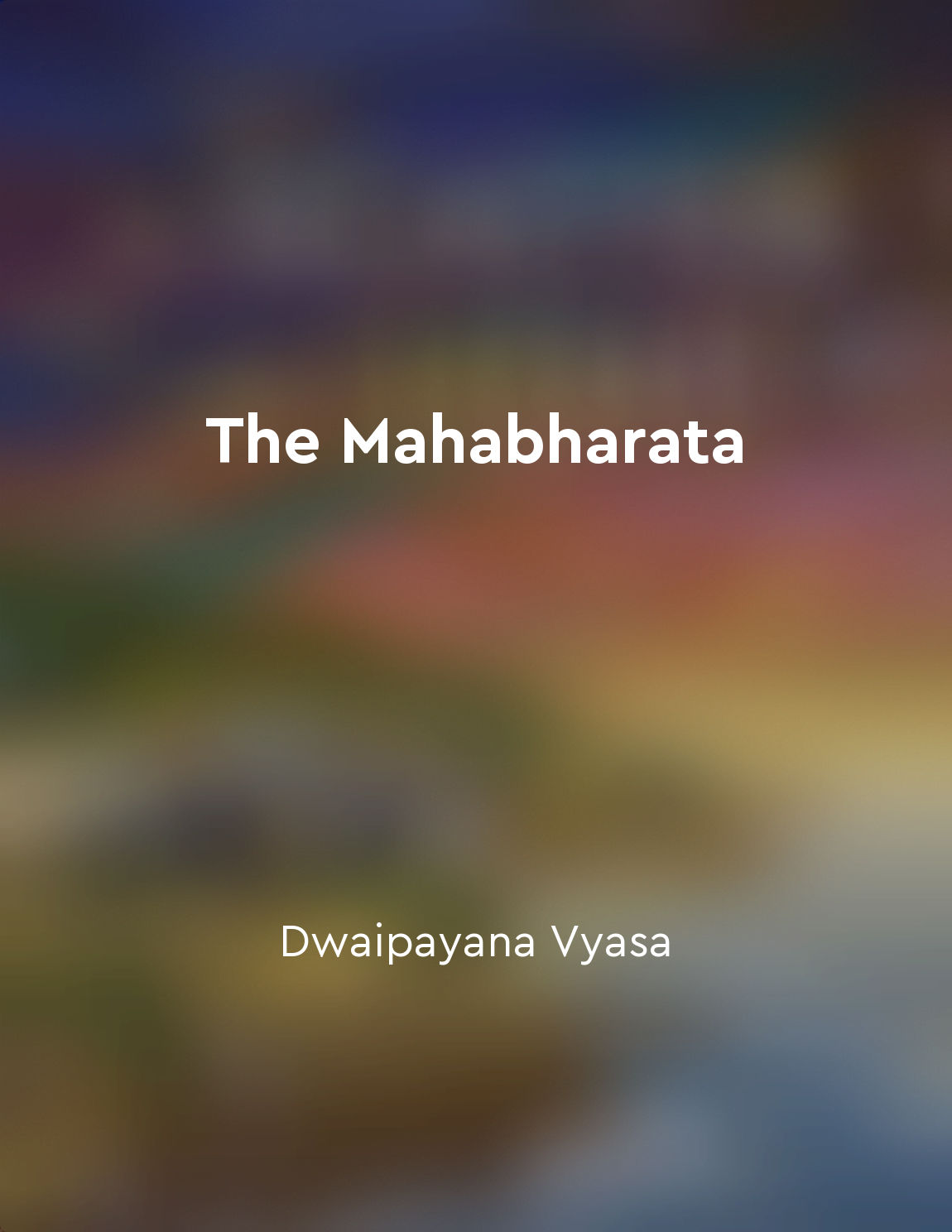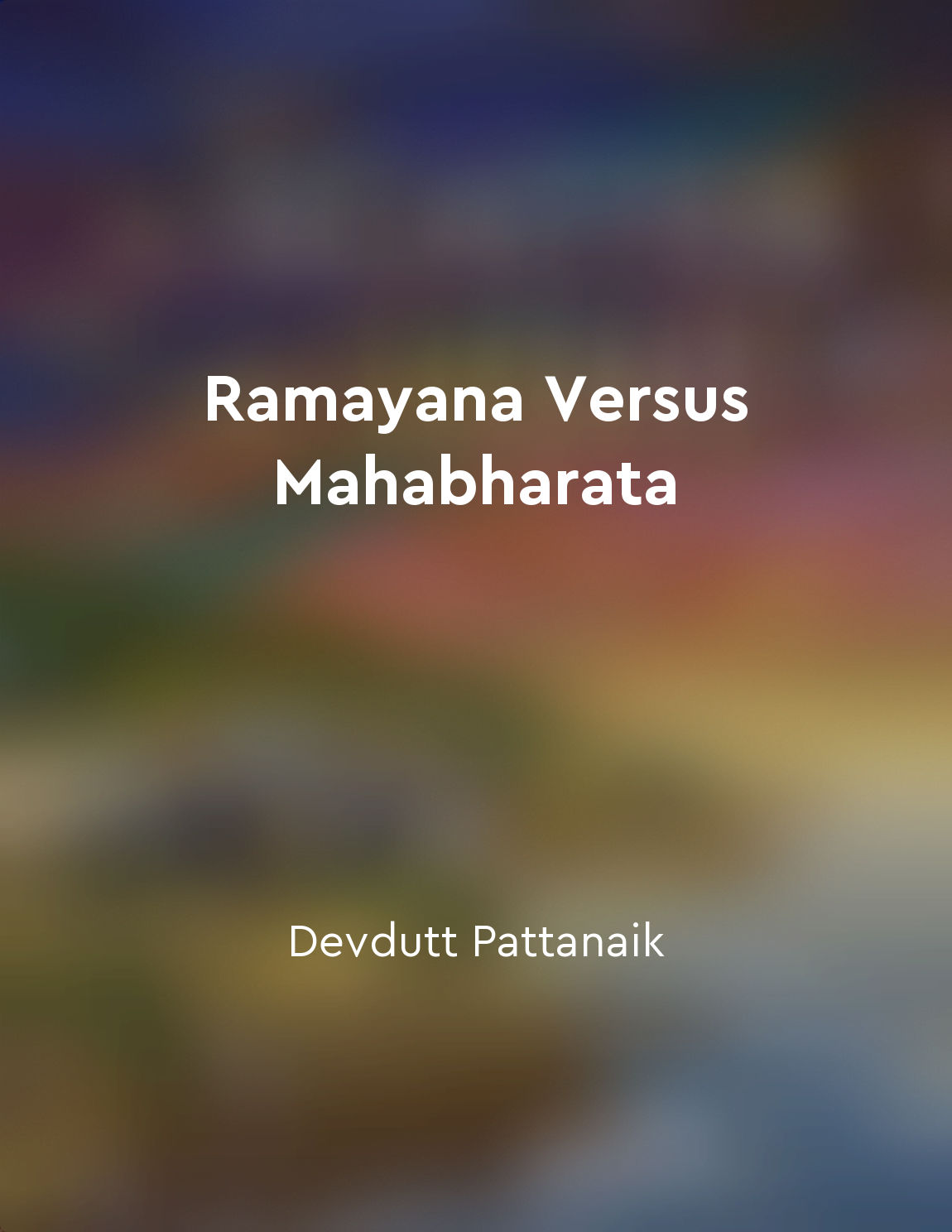Ramayana's Bharadvaja is teacher, Mahabharata's Drona is warrior guru from "summary" of Ramayana Versus Mahabharata by Devdutt Pattanaik
In the epic Ramayana, Bharadvaja plays the role of a teacher to Rama and his brothers. He imparts knowledge and wisdom to them, guiding them on their journey and helping them navigate the challenges they face. Bharadvaja's teachings are focused on righteousness and duty, instilling in them a sense of morality and integrity that shapes their actions throughout the epic. On the other hand, in the Mahabharata, Drona is portrayed as a warrior guru who trains the Pandava and Kaurava princes in the art of warfare. Drona's teachings are more practical and skill-based, focusing on combat techniques and strategies for battle. He prepares the princes for the great war that lies ahead, honing their fighting skills and instilling in them the discipline and courage needed to face their enemies. While Bharadvaja's role is more spiritual and philosophical, guiding the characters on a path of righteousness and moral conduct, Drona's role is more practical and tactical, preparing the characters for physical combat and warfare. Both teachers play crucial roles in shaping the destinies of the characters in their respective epics, influencing their actions and decisions in profound ways. The contrast between Bharadvaja and Drona highlights the different themes and focuses of the Ramayana and the Mahabharata. The Ramayana emphasizes moral and ethical values, while the Mahabharata delves into the complexities of human nature and the moral dilemmas faced by its characters. The roles of Bharadvaja and Drona reflect these overarching themes, guiding the characters on their respective paths and shaping the outcomes of their stories.Similar Posts
Hanuman's devotion to Rama
In the epic Ramayana, Hanuman's unwavering devotion to Rama shines brightly as a guiding light for all devotees. Hanuman, the m...
Hanuman's journey to Lanka
Hanuman, the mighty monkey warrior, embarked on a perilous journey to Lanka, the kingdom of the demon king Ravana. The purpose ...
Battle between Rama and Ravana
The epic battle between Rama and Ravana is the most awe-inspiring event in Valmiki's Ramayana. The clash of these two mighty wa...
Valmiki's masterpiece endures as a timeless classic
Valmiki's epic poem, The Ramayana, is a work of enduring brilliance that transcends time and continues to captivate readers acr...

Overcoming personal desires for higher purpose
In this grand tale of the past, where our heroes walk the earth with the gods, we see a powerful lesson unfold before our very ...

The nature of good and evil
The nature of good and evil is a complex and profound theme that runs through the epic tale of The Mahabharata. It delves into ...
The righteousness of Rama prevails over evil
The righteous nature of Rama shines brightly in the face of evil throughout the epic tale of the Ramayana. Rama's unwavering co...

The role of education in promoting understanding of Hinduism
Education plays a crucial role in fostering a deeper understanding of Hinduism among individuals. Through educational instituti...

